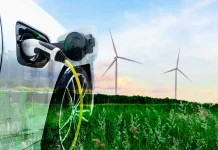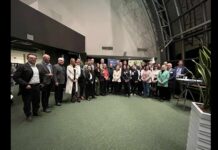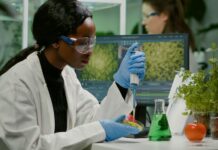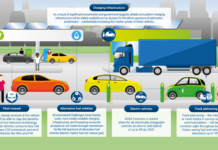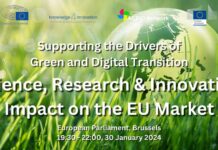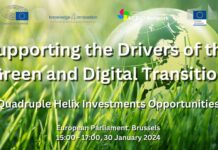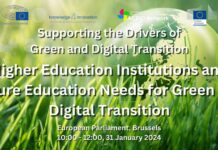The Food, Bioeconomy, Natural Resources, Agriculture and Environment
Research and innovation activities under cluster 6 will contribute to the objectives of the European Green Deal related to the Biodiversity Strategy to 2030EN•••, the Farm to Fork strategyEN•••, the European Climate PactEN••• and initiatives under sustainable industryEN••• and eliminating pollutionEN•••, as well as the long-term vision for rural areas, and the Sustainable Development Goals.
The expected impacts of this cluster are contained in the Horizon Europe strategic planEN•••.
Areas of intervention
- environmental observation
- biodiversity and natural resources
- agriculture, forestry and rural areas
- seas, oceans and inland waters
- food systems
- bio-based innovation systems in the EU’s bioeconomy
- circular systems
Policy information
Research area: EnvironmentEN•••
Research area: BiodiversityEN•••
Research area: Environmental observationEN•••
Research area: Agriculture, forestry and rural areasEN•••
Research area: Oceans and seasEN•••
Research area: Food systemsEN•••
Mission area: Adaptation to climate change including societal transformationEN•••
Mission area: Healthy oceans, seas and inland watersEN•••
Mission area: Soil health and foodEN•••
Candidates for European Partnerships in this clusterEN•••
The specific tasks and responsibilities of a “Food, Bio-economy, and Natural Resources” working group beside EU project preparation and coordination is focusing on its goals and objectives, the organization it belongs to, and the context in which it operates with activities and responsibilities for such a working group:
-
Research and Analysis: Conduct research to understand the current state and trends in food production, agriculture, bioeconomy, and environmental issues. Analyze data to identify challenges and opportunities.
-
Policy Development: Contribute to the development of policies and strategies that promote sustainable agriculture, responsible bioeconomy practices, and environmental conservation.
-
Stakeholder Engagement: Engage with various stakeholders, including farmers, industry representatives, environmental organizations, government agencies, and local communities, to gather input and foster collaboration.
-
Education and Outreach: Develop educational materials and outreach programs to raise awareness about sustainable practices in agriculture and the bioeconomy. Organize workshops, seminars, and public awareness campaigns.
-
Data Collection and Monitoring: Gather data on key indicators related to agriculture, food production, bioeconomy activities, and environmental metrics. Continuously monitor and report on trends to inform decision-makers.
-
Best Practices and Innovation: Identify and promote best practices in agriculture and bioeconomy activities. Encourage innovation and technology adoption to improve sustainability.
-
Collaboration and Networking: Build partnerships with other organizations, both nationally and internationally, to share knowledge, leverage resources, and address common challenges in food production and environmental sustainability.
-
Advocacy: Advocate for policies and actions that align with the group’s objectives, whether that involves supporting legislation, influencing regulations, or mobilizing public support.
-
Evaluation and Assessment: Continuously assess the impact of the group’s initiatives and activities to ensure they are achieving their intended outcomes. Make adjustments as necessary.
-
Sustainability and Conservation: Promote practices that reduce the environmental impact of agriculture and bioeconomy activities, enhance biodiversity, and ensure the long-term viability of natural resources and ecosystems.
-
Climate Resilience: Address climate change adaptation and mitigation strategies in the context of agriculture and the bioeconomy, as these sectors are particularly vulnerable to climate impacts.
-
Food Security: Work to ensure food security by improving access to nutritious and sustainable food while considering the environmental implications.
-
Ecosystem Restoration: Advocate for and participate in ecosystem restoration projects that can help reverse environmental degradation caused by unsustainable practices.
-
Water Resource Management: Focus on responsible water resource management, given its critical role in agriculture and environmental sustainability.
-
Waste Reduction: Promote waste reduction and efficient resource use in agriculture and food production processes.
-
Biodiversity Conservation: Support efforts to conserve and protect biodiversity in agricultural and natural landscapes.
-
Responsible Land Use: Advocate for responsible land use practices that balance agricultural needs with environmental preservation.






